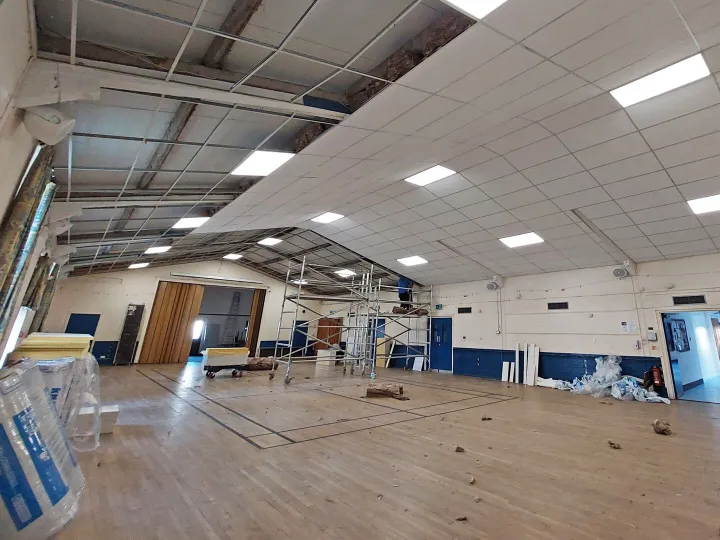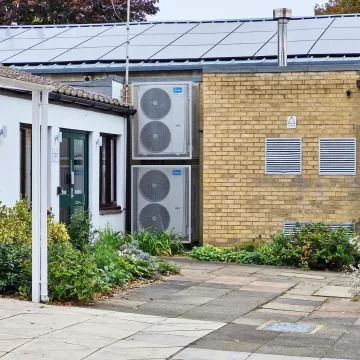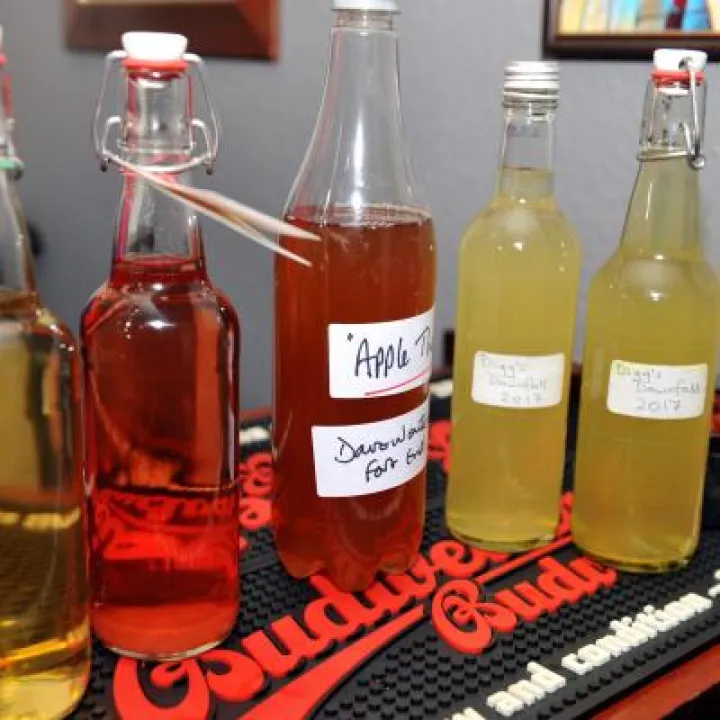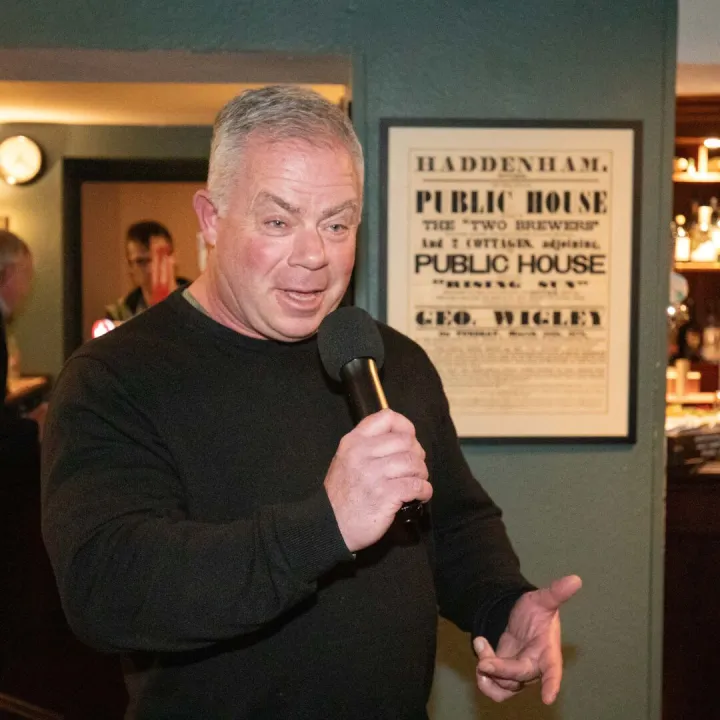Haddenham Village Hall was built in the 1960s and was extended in the 1980s. It is operated by a charitable trust, and its voluntary committee of trustees. The site is a separate trust overseen by the Parish Council.
The Committee were facing several challenges in the daily running of the hall and were keen to use new low or zero carbon technologies to support further decarbonisation, including replacing the large hall's ageing gas-fired warm air unit. To ensure the new air source heat pumps ran efficiently and to minimise wasted energy, the trustees also needed to insulate the roof of the main hall space.
Securing funding
The retrofit had four main goals: insulating the ceiling of the main hall, adding solar PV panels to the roof, replacing the gas boiler with an air source heat pumps; EV charging points had already been added by the Parish Council. £90,000 of funding was secured from a variety of sources: the Platinum Jubilee Village Halls Fund via ACRE, Section 106 funding through the Parish Council and local fundraising efforts.
£40,000 of this money would be spent on installing 48 solar PV panels connected to five batteries (for 17.75kWh total storage), £40,000 installing the 36kw air source heat pumps, and £10,000 to install 200mm of Knauf Insulation Loft Roll 44 in the roof, under which acoustic tiles would be added.
Variable needs
"One of our biggest challenges is that, like all village halls, the need for heating is variable. An exercise class might prefer to have the heating off and all the windows open, whereas the next user group may want to heat the room. This means we need to be able to cool down and heat up the hall quickly so that it's comfortable whatever the event," explained Graham Oliver, a hall trustee and committee member.
This variable need for heating is frustrated by buildings no longer fit for purpose. Data gathered by ACRE (Actions with Communities in Rural England), suggests that many village halls don't use large amounts of energy because frugal users are conscious of the fact that their halls are difficult and costly to warm up. In turn, this can discourage more regular use of a hall.
"We can't yet easily compare today's energy bills to the costs before the project was completed," added Graham, "But we do know that our average gas energy consumed is noticeably falling and it is far more comfortable in the winter and summer, our users have told us they've noticed the positive difference."
Rolling with the times
200mm Loft Roll 44, a glass mineral wool product, was used to insulate the suspended ceiling of the main hall, leaving the pitched roof uninsulated. The rolls are easy to install correctly as they are flexible and will 'knit' together at abutting edges. This ensures a continuous layer of insulation with no air gaps and minimal thermal bridging from penetrating elements.
Loft Roll 44 is also non-combustible with the best possible Euroclass A1 reaction to fire classification, providing assurance that it won't contribute to the spread of fire.
Knauf Insulation's glass mineral wool has the lowest embodied carbon of any mainstream insulation product on the market. Up to 80% of the glass content is recycled cullet and the rolls are manufactured in the UK. This allowed the trustees to use a high-performing, sustainable product to reduce the operational carbon of the hall.
A warm community
"The village hall is always incredibly busy," explained Graham, "It's a good problem to have, but we are often fully booked, and people struggle to get a slot! Installing a modern heating system and insulating the main hall will make all the difference. Many of our regular users have told us it feels warmer, and also better acoustically. We feel confident that it will keep our energy costs and carbon footprint lower. This is a major step in the direction of total decarbonisation for the hall, for which further planning is now in progress."
Correctly installed, high-performance insulation has ensured that the addition of a new air source heat pump and solar PV panels is both sustainable and efficient. Thanks to this holistic retrofit, Haddenham Village Hall continues to be a thriving focal point for the local community that will be fit for purpose even as the UK transitions to net zero.









